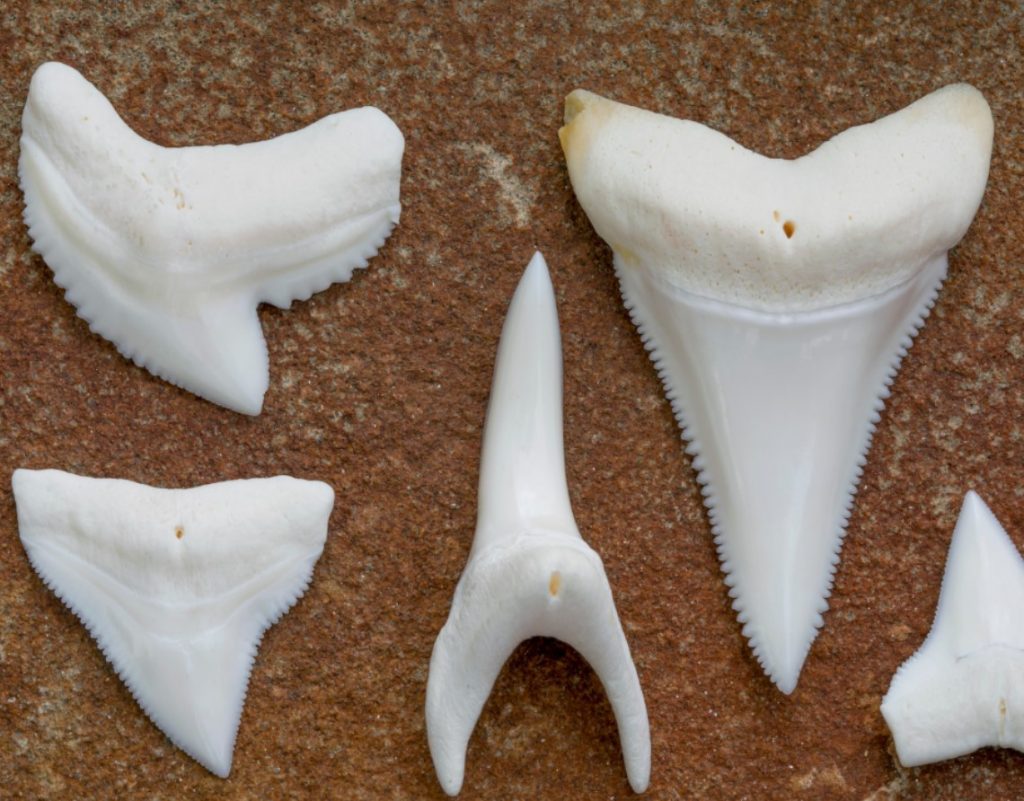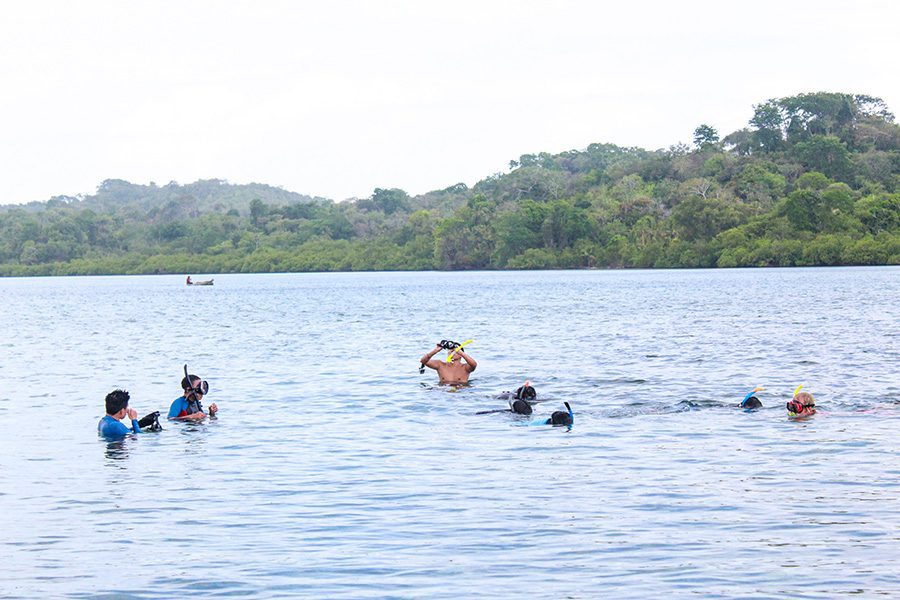 This past year will go down in history for the pandemic’s potent impact on people, travel and economies. Tourism, one of the most affected economic sectors due to widely enacted travel restrictions, saw an 87% drop in arrivals globally between January 2020 and 2021. The sector’s income was reduced by 74.1% in countries such as Panama, disproportionately impacting remote sites such as the autonomous indigenous Guna Yala region.
This past year will go down in history for the pandemic’s potent impact on people, travel and economies. Tourism, one of the most affected economic sectors due to widely enacted travel restrictions, saw an 87% drop in arrivals globally between January 2020 and 2021. The sector’s income was reduced by 74.1% in countries such as Panama, disproportionately impacting remote sites such as the autonomous indigenous Guna Yala region.
Tourism is an important source of revenue for Guna communities in the Narganá region, which hosts the country’s healthiest coral reefs, fringing uninhabited islands with paradisiacal white sandy beaches. Youth often find work opportunities as boat assistants or tour guides, fishers sell their catch to local restaurants and tour groups, and women artisans sell their handmade molas and winis as souvenirs to tourists.
The pandemic hit the Guna communities directly through the comparatively high number of COVID-19 cases and limited access to health care, but also due to limited import of goods and the loss of tourism income. Yet, after closing its borders to tourism for over a year, Guna Yala is once again preparing to receive visitors to enjoy its Caribbean beaches and culture.
While the pandemic has certainly brought many difficulties, the curtailment of tourism has meanwhile provided the region with an opportunity to improve tourism practices and sustainability. Marine tourism has incredible potential as a sustainable economic alternative to extractive activities such as fishing, and can be an important impetus for conserving habitats and biodiversity. However, if not properly managed, tourism activities too can have severe and long-lasting detrimental effects on these already fragile ecosystems, especially when thousands of visitors may visit these sites each month.
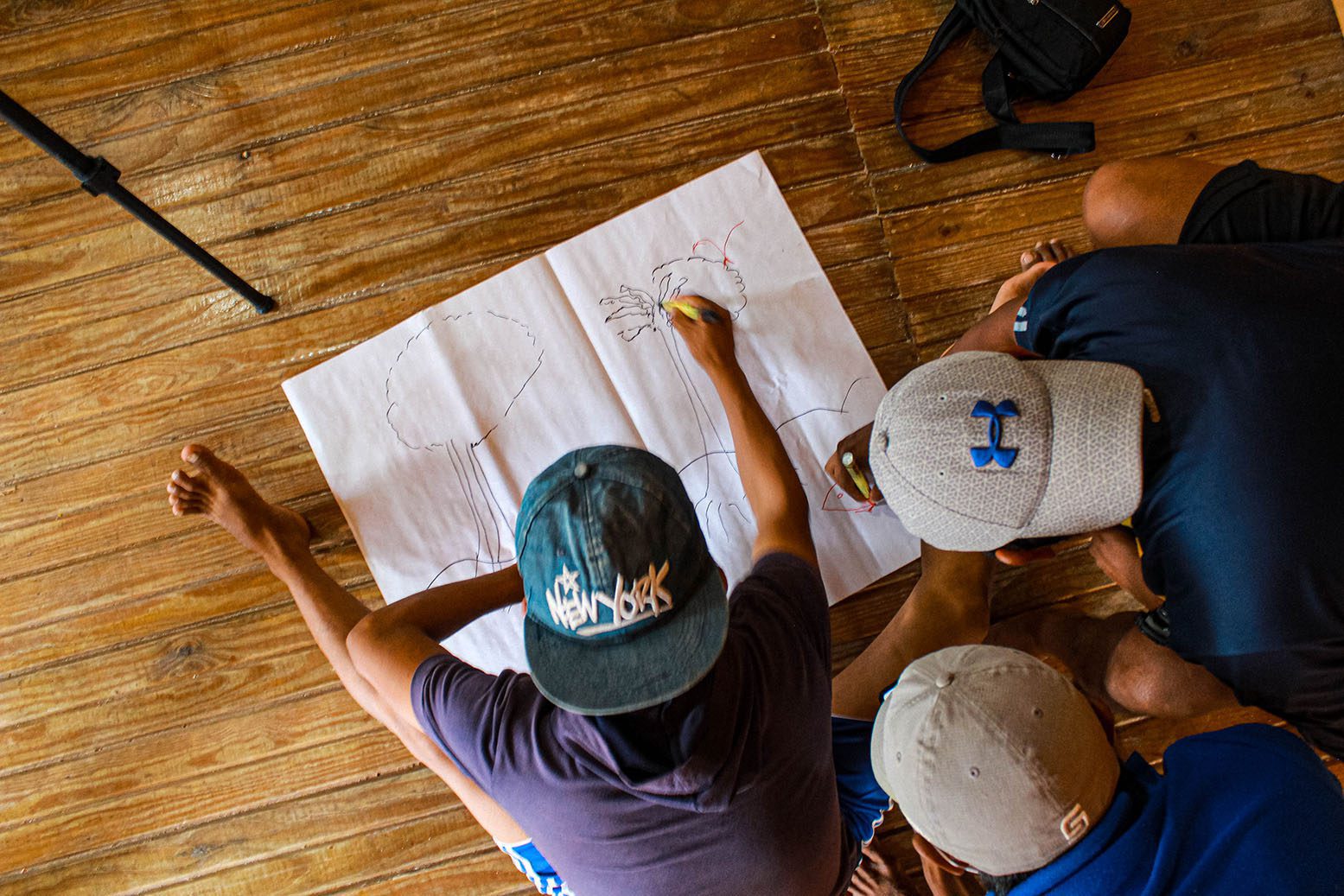 Tourists are often unaware of the damage they create standing on or grabbing corals, taking animals (such as sea stars) out of the water for photo opportunities, consuming or buying threatened species, and not properly disposing of their trash. To guide visitors towards mitigating their impacts, local tour guides can become the caretakers of these critical sites by educating and instructing visitors and calling out any destructive behavior. Unfortunately, tour guides themselves are often also unaware of their impacts.
Tourists are often unaware of the damage they create standing on or grabbing corals, taking animals (such as sea stars) out of the water for photo opportunities, consuming or buying threatened species, and not properly disposing of their trash. To guide visitors towards mitigating their impacts, local tour guides can become the caretakers of these critical sites by educating and instructing visitors and calling out any destructive behavior. Unfortunately, tour guides themselves are often also unaware of their impacts.
To better prepare guides for the new arrival of visitors to the Comarca and build the foundation for more sustainable tourism to the islands, our team of Guna biologists and educators, in collaboration with the General Guna Congress, is running a series of tourism training workshops with local tour guides. Arcadio Castillo, MarAlliance’s Community Officer, considers these informal workshops to be “of the utmost importance, since they are a way to transfer knowledge and so that people become aware of and sensitized to protect and conserve the sea and its resources, which offer us their services for free.” Participants in these interactive workshops are taught about basic marine biology, fundamentals of conservation, and best practices for themes important to the Comarca, which include coral reefs and mangroves, marine turtles, lobster and finfish fisheries, invasive lionfish, marine predators, and the proper disposal of solid waste.
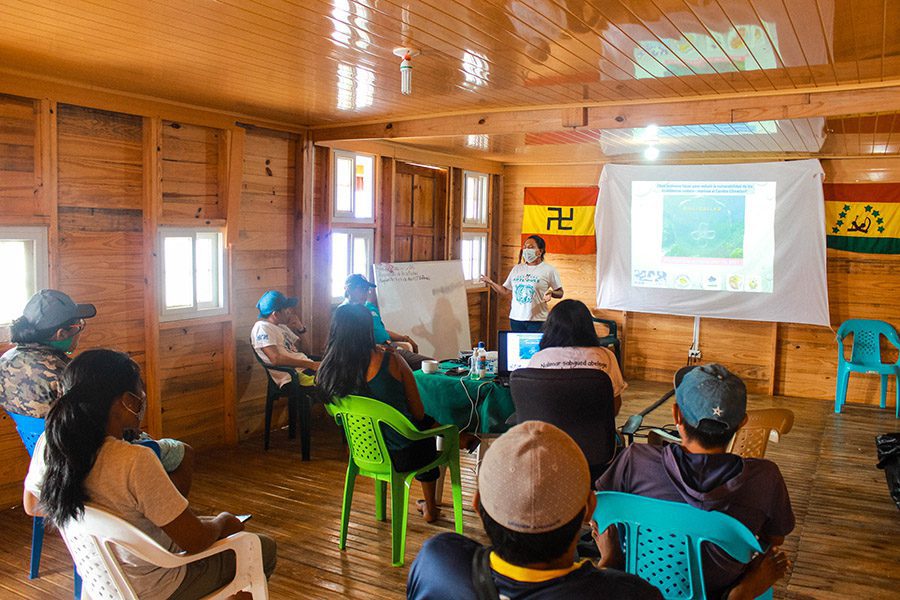
Participants so far have shared that the workshops have been incredibly valuable and suggest expanding them to include other groups of participants: “These workshops should be directed at guides but also boat captains and assistants who take tourists to the sea, since many tourists like to take out sea stars and other organisms from their habitats to take pictures with them, and equally many tourists step on and break the corals when they are snorkeling”, says Karin Valdes, a local guide and workshop participant.
These workshops are funded through the Mola mask sales that so many supporters of MarAlliance purchased over the past 9 months. Thanks to continued mask sales, we look forward to continuing these activities with local leaders and communities, and adding our ‘grain of sand’ to support the Comarca’s autonomous efforts to strengthen the conservation of their marine resources.
